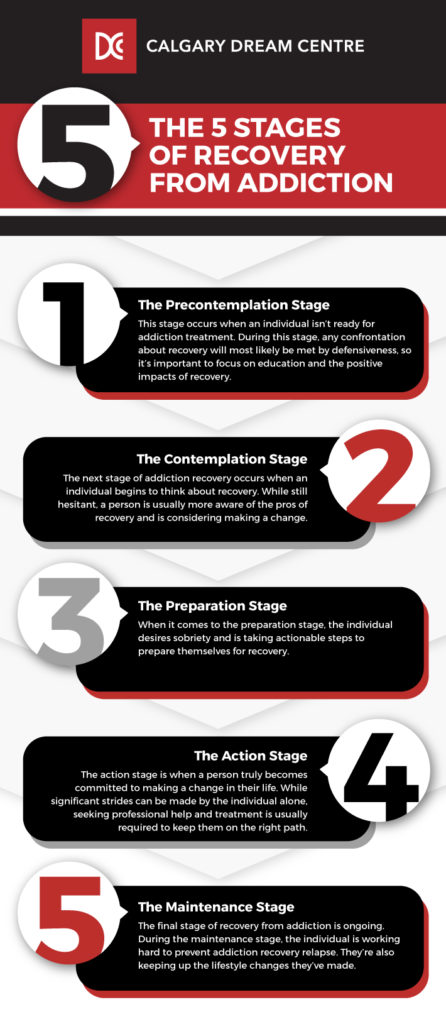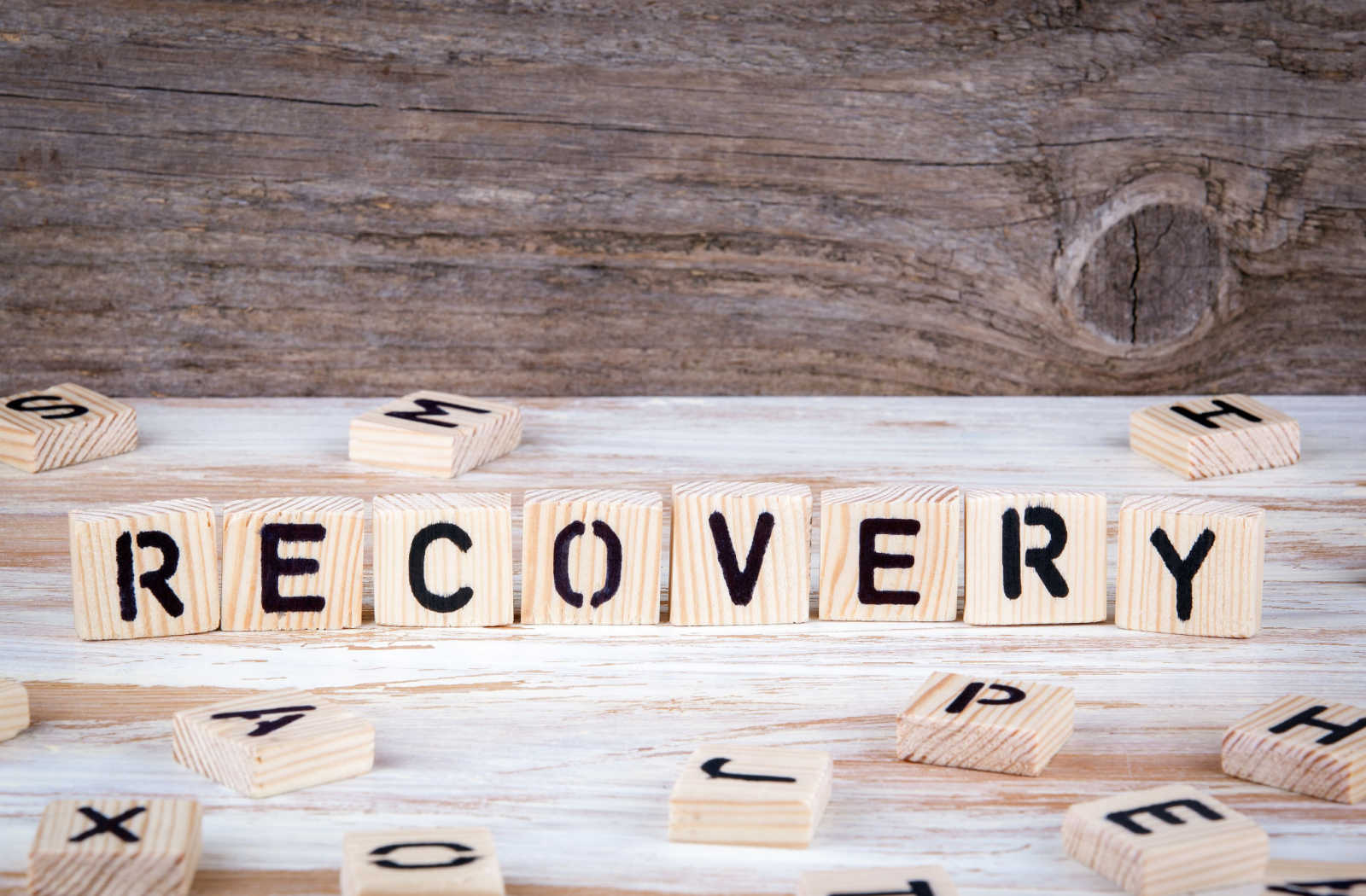Overcoming addiction is a long journey, and the right type of support is key to making the recovery process meaningful and successful. But how exactly does recovery from addiction work?
While recovery from addiction looks different for everyone, the goal of addiction recovery programs remains the same: to help individuals live a full and productive life free from addiction and abused substances.
Successful sobriety starts in a safe, sober, and caring environment with a dedicated team of people, including the patient, who are willing to work towards a common goal.
Keep reading to learn more about addiction, how to tell when you or a loved one needs help, and how the five steps of addiction recovery work.
Addiction Defined
Addiction is a neuropsychological disorder characterised by a persistent urge to engage in certain behaviours or use certain substances that result in negative outcomes.
When it comes to addiction, there is a difference between liking and wanting. With time, liking a substance or behaviour is replaced with a want or an urge, despite any negative consequences that result from the action.
The Brain & Addiction
Just as chronic disease damages the body and changes how it’s able to function, addiction does the same to the brain. Studies have shown that long-term repetitive drug use can alter brain function, leading to weakened self-control and altered decision-making skills, perpetuating addictive tendencies.
Addictive drugs can affect the brain’s natural reward system, releasing unhealthy levels of dopamine. Over time, the brain can develop a tolerance to the effects of the drug, which can cause people to consume greater amounts of the drug more frequently. This can lead to dangerous and serious outcomes, which is why proper treatment is critical.
Spotting the Signs of Addiction
If you or a loved one is experiencing addiction, always know that there’s help available. Someone experiencing addiction may have:
- Inability to stay away from the substance or stop the addictive behaviour
- Obsessive thoughts & actions
- Disregard of harm caused or negative consequences
- Denial of addiction or hiding drug use
- A lack of self-control
- Physical signs of drug use such as sudden weight loss, weight gain, or change in pupil size
- Lack an emotional response
If you think that you or a loved one is struggling with addiction, our team at Calgary Dream Centre is here to help you overcome your substance-abuse disorder. We’re only one call away and always ready to talk. Get in touch with us today.
How is Addiction Treated?
All types of addiction are treatable.
No matter what you’re struggling with or which treatment therapy you choose, recovery focuses on helping you or your loved one overcome addiction.
Common addiction therapies include:
- Medications for mental disorders causing addiction
- Psychotherapy
- Medical services, including withdrawal services during detox
- Inpatient addiction treatment
- Self-help and support groups

The 5 Stages of Recovery from Addiction
So how exactly does recovery addiction work? Generally, there are five stages of addiction recovery, which include pre-contemplation, contemplation, preparation, action, and maintenance.
Keep reading to learn more about each stage.
Precontemplation Stage
The first stage of addiction recovery is the precontemplation stage. This stage occurs when an individual isn’t ready for addiction treatment. During this stage, any confrontation about recovery will most likely be met by defensiveness, so it’s important to focus on education and the positive impacts of recovery.
Oftentimes, people can remain in this stage due to failed attempts at recovery. While recovery may seem impossible for some individuals, the truth is that anyone can recover with the right support.
Contemplation Stage
The next stage of addiction recovery occurs when an individual begins to think about recovery. While still hesitant, a person is usually more aware of the pros of recovery and is considering making a change.
The contemplation stage is a critical stage for family members and recovery team members because people are more likely to listen in this stage. To help your loved one through this stage, it’s important to be completely supportive and judgement-free.
Preparation Stage
When it comes to the preparation stage, the individual desires sobriety and is taking actionable steps to prepare themselves for recovery. This can include:
- Making healthier decisions such as joining a gym
- Seeing a counsellor
- Attempting to quit their addiction by themselves
- Researching treatment programs & centres
- Talking with loved ones about their struggles
The preparation stage doesn’t necessarily mean people will go straight to the next phase of seeking treatment, and it’s normal for people to go back to the pre-contemplation or contemplation stages, especially if triggered.
Action Stage
The action stage is when a person truly becomes committed to making a change in their life. During the action stage, change will be apparent in multiple aspects of their lifestyle, not just in their relationship to their addiction. While significant strides can be made by the individual alone, seeking professional help and treatment is usually required to keep them on the right path.
Maintenance Stage
The final stage of recovery from addiction is ongoing. During the maintenance stage, the individual is working hard to prevent addiction recovery relapse. They’re also keeping up the lifestyle changes they made, which can include:
- Getting regular exercise
- recreational activities
- Creating new habits & paying attention to sleep & hygiene
- Attending support groups & therapy
Throughout the maintenance stage, someone recovering from addiction will begin to feel the urge of their addiction decreasing, helping them to reach a point where they don’t relapse. For most people, it takes a couple of years to truly break the habit.

Find Out More About the Process
At the Calgary Dream Centre, we meet each client where they’re at in their journey to recovery.
We offer a variety of programs to help those that need additional support. To learn more about our programs, visit our website or get in touch with one of our team members.
If you ever need someone to talk to, we’re here for you.



